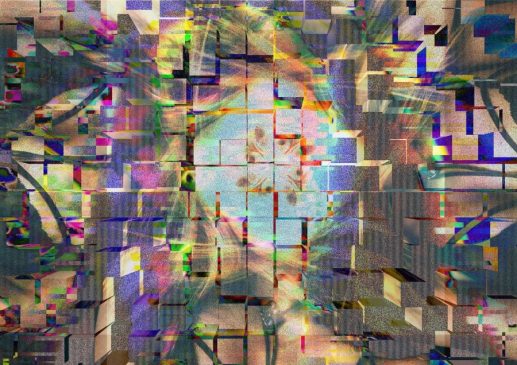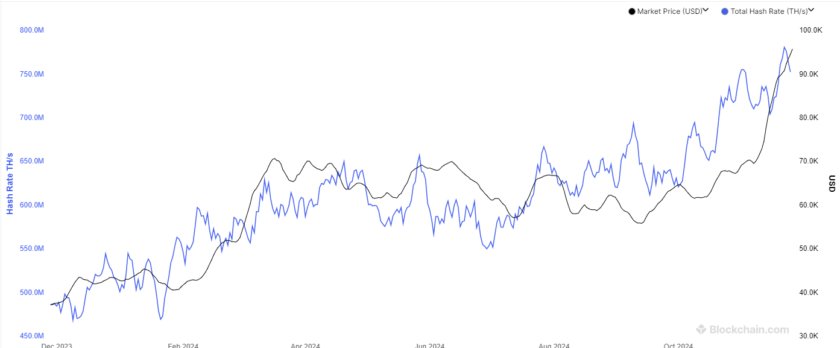Centralization Cannot Sustain Society–Enter Blockchain Technology
December 25, 2018 by Bitsonline Guest Contributor
Blockchain is set to take us back to the future. In the beginning, the internet was a system owned by no one and everyone at the same time. This was instrumental in its explosion in popularity–anyone, from anywhere, could create content and share it with the world. In that ungoverned system, neither governmental nor business forces were able to control or restrict the web, its users, or the information on it.
Guest article by Jonas Sevel Karlberg, CEO of AmaZix
This story is the first in a three-part series called “Three Reasons Why the Future is Blockchain”.
Also see: New White House Bitcoin Supporter Unlikely to Cause a Crypto Stir
Subscribe to the Bitsonline YouTube channel for great videos featuring industry insiders & experts
Then the Internet Changed
More recently, commercialization driven by large, dominant actors has led to the creation of a system where we are shown information paid for and placed by the wealthy and powerful. Tech giants, big business, and even governments now actively police not only what we can do on the internet, but they also have unrivaled and unprecedented ability to watch us do it.
This is not how the internet should operate, and it doesn’t have to continue to function this way. Introducing blockchain: a distributed ledger network created through a commitment to achieve decentralization and democratization. Blockchain offers a solution to the monopolization that currently dominates the internet.
Corrupted by Commercialization
Although the internet is still largely physically decentralized, it now depends on large, centralized services to support its critical components such as web hosting, cloud computing, DNS services, social media, search engines, email services, and many more.
Google Chrome is among the most popular web browsers in the world–Android smartphones, along with the ubiquitous Google Suite, combine to give Google hegemony over the internet. Indeed, as Mozilla’s Internet Health Report 2018 shows, more than 90 percent of internet users use Google Search.
Other giant companies have similar control in other areas, with Amazon dominating cloud storage and Facebook governing social networking. The ability of these global behemoths to observe what people do on the internet at an unprecedented level is part of the reason for their dominant positions, and it allows them to exploit that information for their own commercial and financial gain.
More concerning is their ability to dictate what consumers can and can’t see–search results are ranked according to advertising revenue, and are filtered by location and government, subtly concealing advertising based on consumer behaviors and demographics. Accuracy, fairness, and relevance of information are secondary to popularity, price, and commercial value.
This betrays the ideals upon which the internet was built. What we do is only by permission of some central entity. Want to buy something online? You can, but only if your bank or payment processor pays the merchant on your behalf. Want to say hello to a friend halfway across the world? Sure, but only if Facebook relays the message for you.
Giving Information Back to the Community
First, it’s important to distinguish between architectural and political decentralization. The former refers to the number of computers that make up a system, while the latter concerns how many individuals or organizations ultimately control that system.
Blockchain uses both to take ownership of information away from giant, authoritarian tech companies, and put it back in the hands of ordinary people.
In a decentralized system, the internet becomes a community of users and a network of independent machines that power and host information. This not only removes central hands from the levers of control, but also makes systems more resilient to hacks and failures.
Blockchain is already decentralizing monetary transactions, among other things, and will be vital in the creation of a sustainable decentralized internet. It enables decentralized web hosting, protecting against DDoS attacks by replacing centralized servers with thousands of nodes, each of which constitutes a small part of a website. This is the basis of architectural decentralization, and is a necessary change given notable recent data breaches.
In turn, architectural decentralization promotes political decentralization, handing control of information back to users. Distributed ledgers at the center of blockchain not only protect against data breaches, but also prevent companies that store information from using it for their own commercial benefit, sharing it with governments, or selling it to third parties without user consent. By storing data across a distributed network, blockchain technology makes sure that individuals retain ownership of their information.
Decentralization Via Blockchain Technology Is Coming
Decentralization is the way forward, but there are undoubtedly several challenges to overcome along the way which must be solved if the transformative potential of blockchain is to be realized.
The most significant issue currently facing blockchain systems is scalability, and this is limiting mainstream adoption of the technology. Protecting privacy is also vital if user data and information is to be properly guarded, given that blockchain currently relies on pseudonymity rather than anonymity.
The biggest challenge to be solved, though, is the sluggish adoption of, and familiarity with, the underlying technology. If a decentralized internet is to re-emerge, people beyond the blockchain and crypto communities must engage with and support it. This means the pervading cynical perception of blockchain has to be defeated.
The bottom line is that centralization cannot sustain society. The decentralization revolution has been quietly underway for longer than you might think, and blockchain is about to step it up a gear.
The cryptosphere is driven by its unique capacity for collective development and a common belief in the transformative potential of technology for improving society as a whole. If anyone can transform the decentralized dream into a reality, the crypto community can.
Have your say. Are you excited by the democratization potential blockchain offers all of us?
Images via Pixabay







